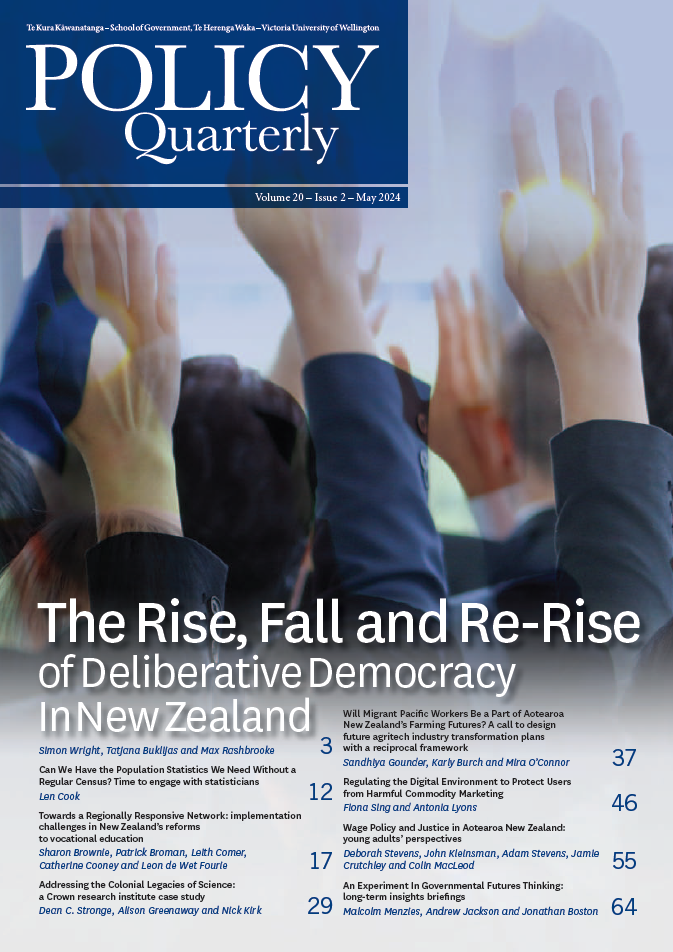An Experiment in Governmental Futures Thinking: long-term insights briefings
DOI:
https://doi.org/10.26686/pq.v20i2.9485Keywords:
futures thinking, foresight, long-term insights briefings, New ZealandAbstract
New Zealand’s Public Service Act 2020 requires departmental chief executives to give a long-term insights briefing (LTIB) to their respective ministers at least once every three years. The LTIBs must provide ‘information about medium- and long-term trends, risks, and opportunities that affect or may affect New Zealand’, along with ‘information and impartial analysis, including policy options’ to address the matters raised. The first suite of LTIBs were prepared during 2022–23. This article assesses the first round of LTIBs, giving particular attention to how they identified future risks and opportunities and the extent to which they adopted robust foresight techniques. Based on this analysis, we suggest how the process for preparing future LTIBs might be improved.
Downloads
Downloads
Published
Issue
Section
License
Permission: In the interest of promoting debate and wider dissemination, the IGPS encourages use of all or part of the articles appearing in PQ, where there is no element of commercial gain. Appropriate acknowledgement of both author and source should be made in all cases. Please direct requests for permission to reprint articles from this publication to Policy-Quarterly@vuw.ac.nz.



